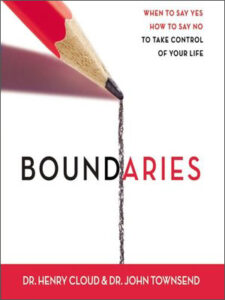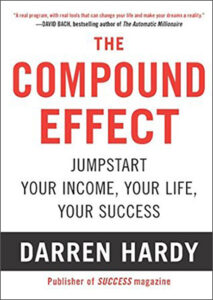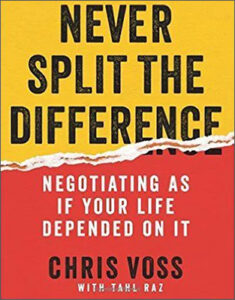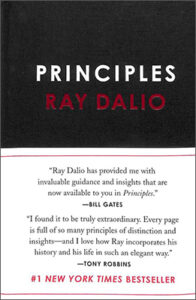Have you ever said, “We should do this,” …and then you don’t? That is a lack of intentionality.
Being Intentional Comes Easy to Some, Hard for Others
The differences in people are beautiful – life would be boring otherwise.
If you’ve read results from a personality test, you know each personality has its benefits (things they are good at) and its areas to watch out for (things they may overlook or not handle well). The trick is learning to benefit from what you do well and find solutions for the areas in which you are weaker.
If Intentionality Comes Easy to You…
Like me, you’re probably a planner. You likely keep your calendar up to date and give others advanced notice so they can plan too. As a project manager, that’s my job!
In our worldview, things go much smoother when everything is aligned. Unplanned changes can be a headache, and you may want time to consider them thoroughly.
Those you interact with may not be as intentional as you. There may also be areas in your life where you are less intentional than you’d like to be. You’ll need to learn how to use your gift to help others and to focus on the things most important to those you work with.
Realize that the real world may change your plans; you need to accept that. Relying on others may help you here.
If You Struggle with Intentionality…
You’re more like my wife. She keeps a calendar, but it isn’t always up to date, and she thrives on spontaneity and “playing it by ear.”
In this worldview, you know that you can’t predict everything and want to ensure you are flexible. You probably like to react to changes in an instant.
You may have some areas of your life where you are intentional, but it doesn’t come naturally. You’ll benefit from finding some ways to force intentionality or find others to help you. Figuring out what’s most important to you will help focus your attention.
Realize that goals without a plan are just a dream and that you can choose to change your reality.
The Two Versions of Ourselves
The truth is that no one acts the same in every scenario. You may be intentional at work, but not as much at home. You may be intentional with the things you enjoy and not as much for the responsibilities you’d rather avoid.
For all of us, the two versions of ourselves (logical and emotional) are well documented, and you’ll see many authors pointing out ways to deal with them. Here are some of my all-time favorite books, and each gives advice on how to handle this internal struggle while coexisting with others.
Boundariesby Dr. Henry Cloud & Dr. John Townsend | The Compound Effectby Darren Hardy |
Never Split the Differenceby Chris Voss with Tahl Raz | Principles: Life & Workby Ray Dalio |
Being Intentional at Home
Stress and joy at home tend to creep into all areas of your life. If you’re stressed about finances at home, you’ll think about it at work. When things are hectic within your family, you’ll be too exhausted to volunteer in your community.
We’re all human, meaning emotions play a role in our lives. You may think everything is cruising along just fine, and someone important to you says they aren’t getting enough of your time. Or you may not have good role models for managing debt, and now you fear you’ll be in trouble when it is time for retirement.
Adding intentionality to your arsenal can help smooth things out. The five key areas of life are:
- Self / Personal Growth
- Health / Physical
- Family / Relational / Social
- Financial / Career / Mission
- Spiritual / Contribution / Values
Identify for yourself what’s most important to YOU within these areas. If you’ve ever seen the presentation of filling a jar with rocks, pebbles, and sand – it is a perfect analogy! Then, set things in motion to ensure the important things are covered. When time runs short, you want the less important things to be what remain unfinished. You may even enlist someone else (a spouse, a friend, a family member) and ask if they could be your accountability partner.
Don’t leave the important things up to chance; put them on your calendar, or leave post-it notes for yourself, and do them!

Being Intentional at Work
Intentionality at work may be unavoidable, even when it doesn’t come naturally to you.
Many of us have full calendars at work, which other people have often filled in. You may attend meetings where you aren’t even able to contribute! A tell-tale sign that this is happening to you is reaching five o’clock and being thankful that now the “real work” can begin. That’s an indicator that priorities and boundaries aren’t properly set.
Once again, you can use a calendar to your advantage by using time-blocking. Put blocks of an hour or more to do the “real work” that needs to be done during normal working hours. I promise that doing so will help you focus on the important things while avoiding the unimportant.
Maybe your boss doesn’t respect boundaries. Understanding your own priorities and being intentional with them can help you be prepared to respond. “If I do this, then are you OK with that other thing being delayed?” Perhaps your boss is simply oblivious to what is weighing on you. Your boss can better serve you if they understand.
I once did digital marketing work with a group for customer reviews and reputation analysis. Only upset customers would fill out public online reviews. The happy customers seemed to share positive reviews verbally or in personal emails. Many of the bad reviews were for things outside our group’s control – for resellers, third-party installers, etc. Our team decided to become intentional about soliciting reviews. We segmented out product reviews so they could clearly be seen. Social monitoring tools with sentiment analysis caught positive comments randomly posted online so that we could amplify them. We did things on purpose, and it worked wonderfully.
Intentionality in Project Management
If you are familiar with waterfall and agile methodologies in project management, then you may have experienced the different approaches to intentionality. Switching from one methodology to the other may give your team some frustrations about retaining the intentionality they were used to.
Waterfall Approach
The waterfall approach is a logical, stepped process from discovery, planning, execution, and launch. Each phase normally falls in line chronologically, often ending in a large launch of the entire project. This can take many months to run the full cycle. To some, this approach makes sense because how can you execute something if it has not been fully planned out?
Agile Approach
The agile approach is built to allow faster reaction times and smaller deliverables, aiming at “sprints” of work that are measured in weeks. The goal is minimal functionality as early as possible so that you can receive feedback and view results sooner. This allows for changes to be identified more quickly. Some feel at home with this approach, while others feel like they’ve lost some control.
Intentionality Rules Them All
With either methodology, intentionality remains important. In large projects, you cannot leave things to chance. Hope is not the strategy you want to rely on when you are tasked with delivering results.
Regardless, you will want to understand that you cannot control everything. The world will throw hurdles at you. You’ll need to regularly rebalance the workload. When that time comes, you’ll be better off with intentionality – even with respect to the unexpected. Consider using the Eisenhower Quadrants of Productivity. You can choose to do things on purpose or let it up to chance. The cost in time and money can be expensive if you simply take it as it comes.
Conclusion
Reflect on yourself and figure out what your personality type is. Help others where you are strong while asking for help where you are not. Then assess what’s truly important to you and do things on purpose to make sure the things that matter most get the attention they deserve. Don’t leave things to chance when they are important.
If you’d like a partner in your quest to become intentional in your projects, reach out to your Perficient account manager, or use our contact page to begin a conversation.





